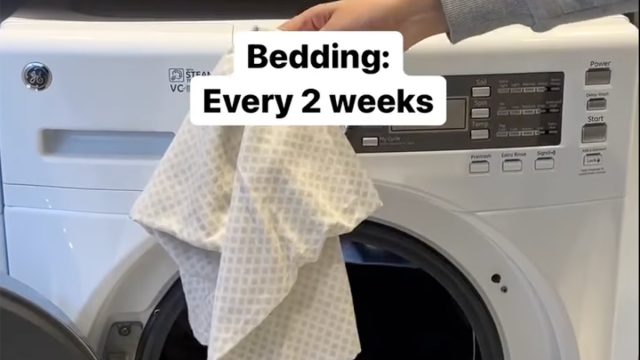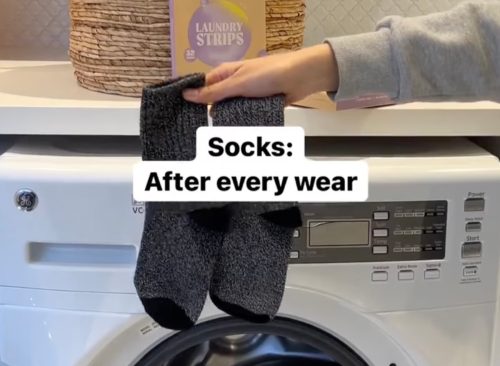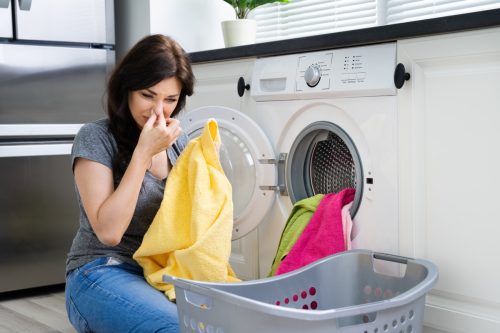Video Showing How Often You Should Wash Your Clothes Sparks “Dirty” Debate
People are horrified by these “disgusting” laundry guidelines.

Laundry detergent brand Washland caused an online uproar after posting a video with guidelines for exactly how often clothes and bedding should be washed. Some commenters found the advice “disgusting,” while others didn’t see what the issue was. Read on to learn what the company recommends, what the reaction was, and what is the doctors’ opinion.

Here are the brief Washland guidelines that caused such a ruckus: “Socks after every wear. Bras three to four wears. Shirts two to four wears. Pajamas three to five wears. Bedding every two weeks. Towels one to two times per week. Denim every ten wears.” Keep reading to see the video.

More than 8.9 million people watched the video on Facebook and the response has been divided: Many think the guidelines are disgusting, while others are defending the company and saying there is such a thing as “too clean.” “Your clothes pick up dirt, hair etc. From one day, could not, should not, wear them for longer. That is gross. I wash my clothes after one wear, could never sleep in sheets that had not been changed and washed after a week,” says one commenter. But others disagree. “No wonder there are so many allergies…. There is such a thing as too clean!!!You have no chance to build up immunities and all those chemicals from washing detergents cannot be good for your skin!” says another commenter.

How often should we really be washing bedding? “Most people should wash their sheets once per week,” says Daniel Noyed, Certified Sleep Coach. “If you don’t sleep on your mattress every day, you may be able to stretch this to once every two weeks or so. Some people should wash their sheets even more often than once a week. If you have pets, and particularly if you let them sleep in your bed, a wash every 3-4 days is recommended. If you experience allergies or asthma, it may be worth it to try cleaning your bedding more frequently to see if your symptoms improve.”

So… what happens if you don’t wash your sheets for a month? “Washing once a week is best,” says lifestyle expert Cheryl Nelson. “But definitely wash sheets AT LEAST once every two weeks. That’s the maximum amount of time you should go. You’re washing off germs, sweat, saliva, body oils, allergens, pollen, makeup residue, dead skin cells, pet dander, dust mites, bacteria, fungi, and even bodily fluids/fecal matter, all of which can cause health problems. More exposure to pollen, pet dander, fungi, etc. can worsen allergy and asthma symptoms. Dirty sheets can also cause contact dermatitis or trigger eczema.”

Has our obsession with germs actually made us more sick? “Why do we have more allergies and autoimmune disease now?” asks Maria I. Garcia Lloret, MD, assistant clinical professor of allergy and immunology at UCLA. “What is it about us? Is it that we are too clean?”
According to Dr. Garcia Lloret, microbe diversity is crucial for good health. “Microbes on our skin and in our guts rule a lot of what happens to us, aside from causing infection,” she says. “The microbial diversity contributes to our health. Therefore, if you disrupt the microbial environment, you are interfering with the good things that are able to control the allergic response. The less diverse your microbes are, the more prone you are to diseases like inflammatory bowel disease and allergies. The new understanding is that we require microbial diversity to thrive.”














